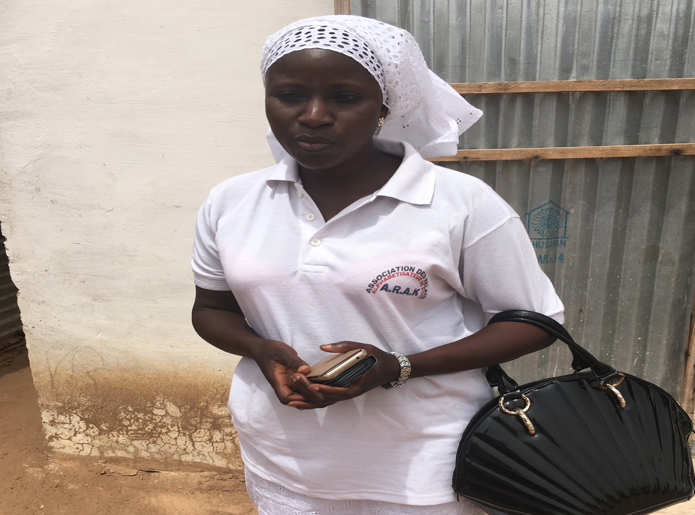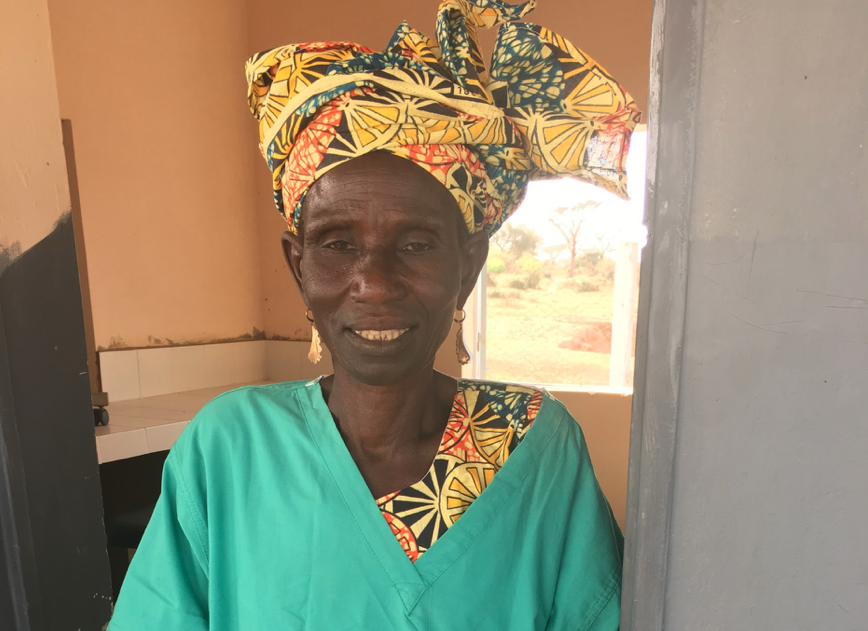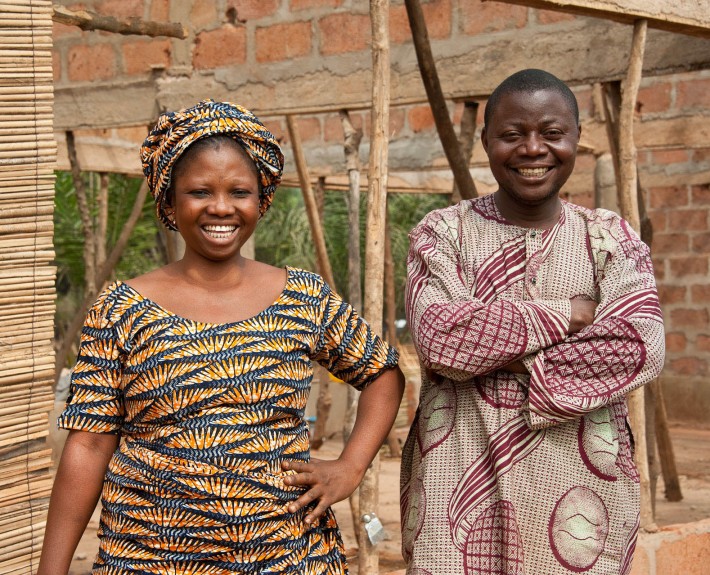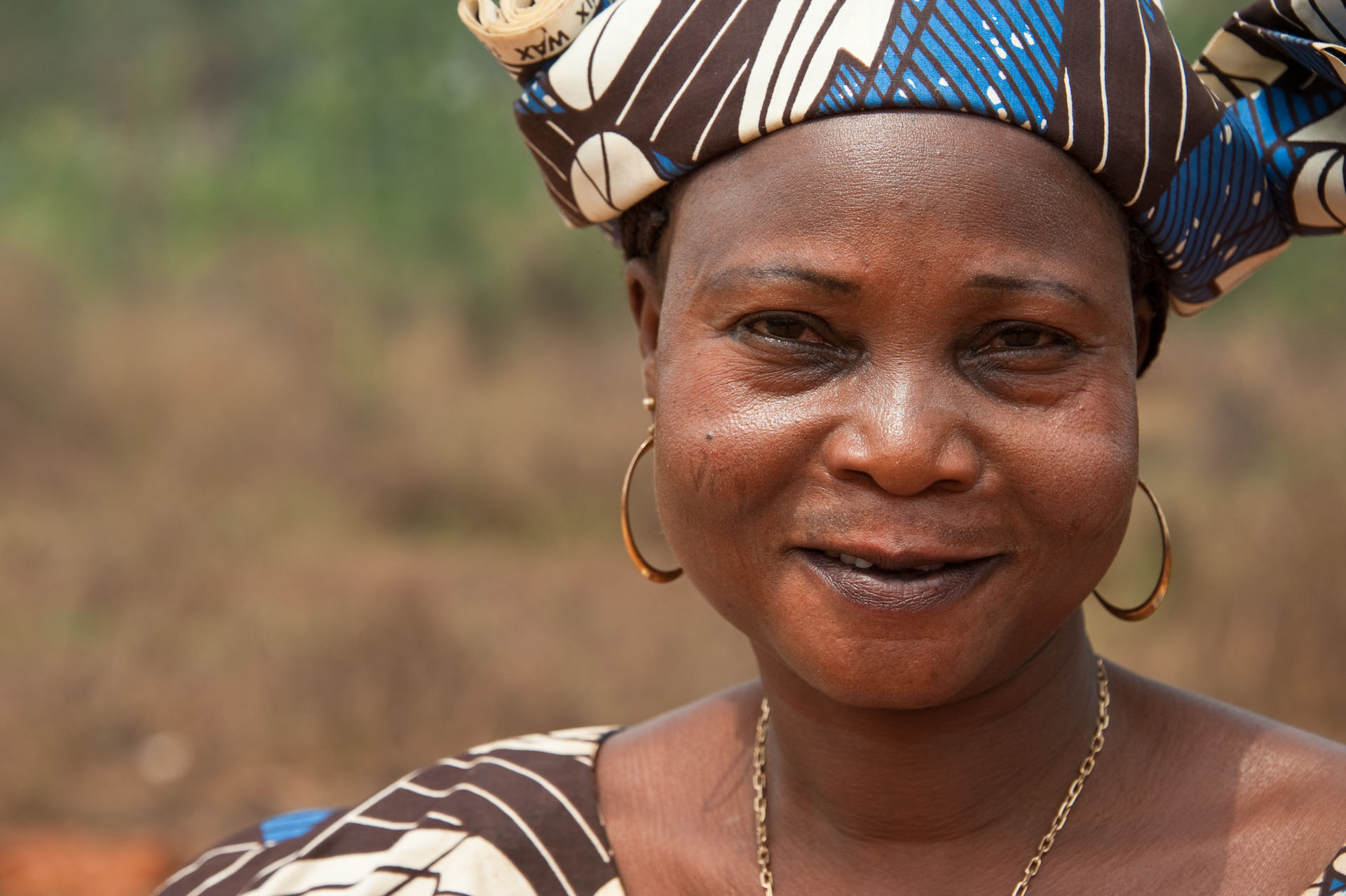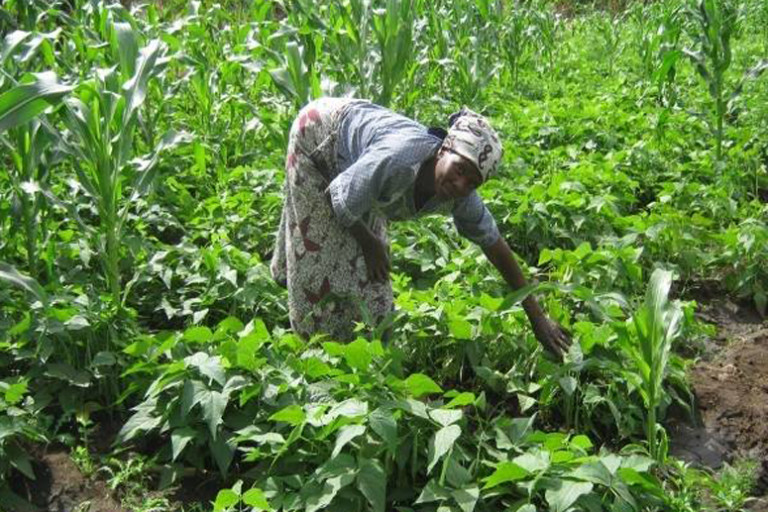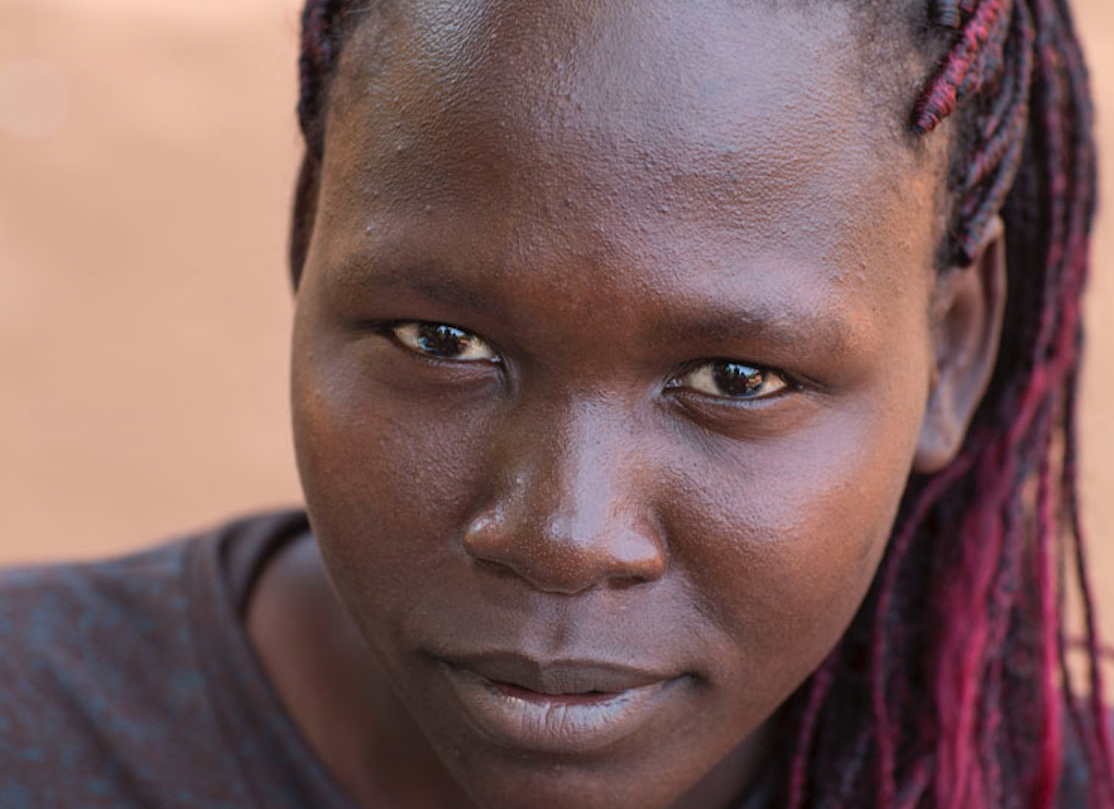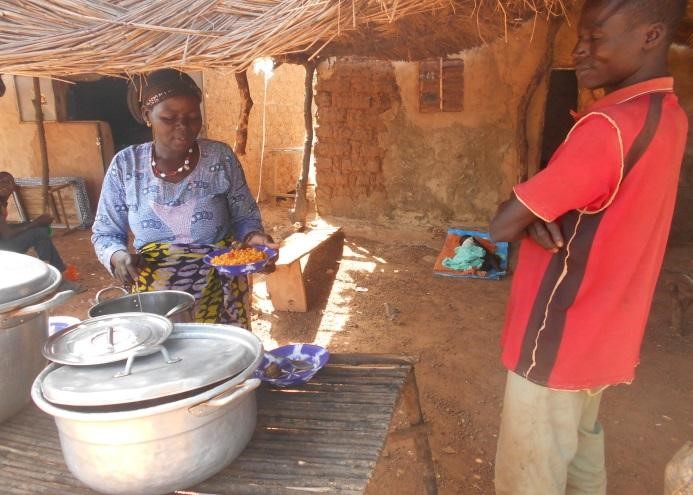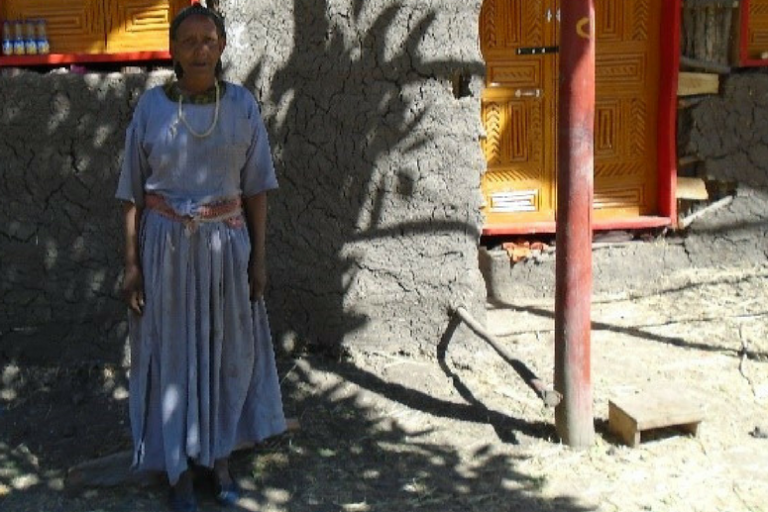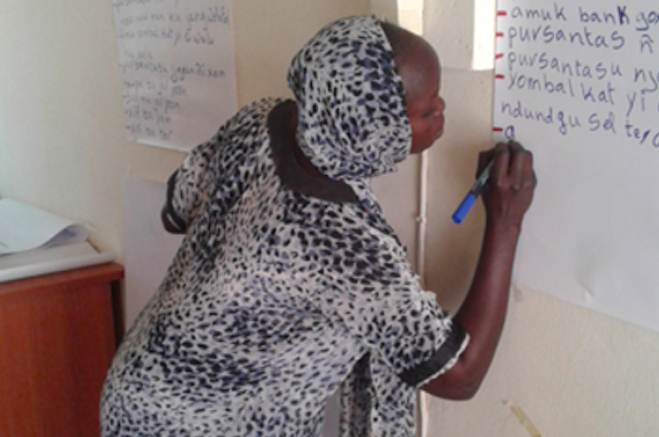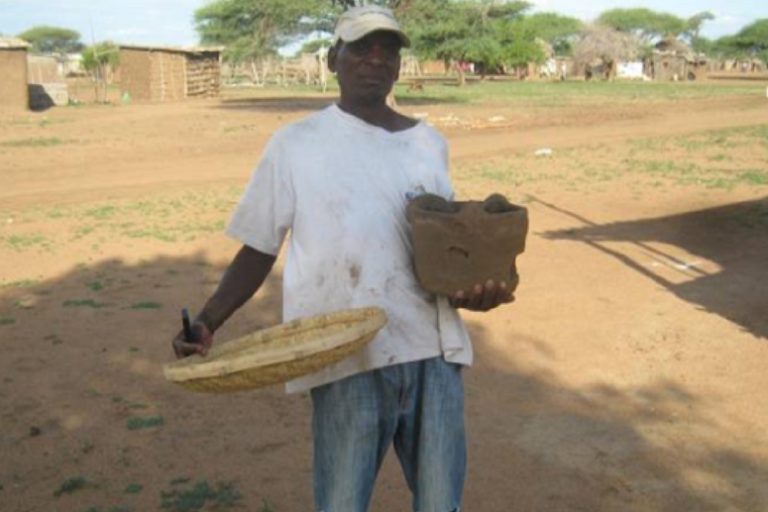Ndeye lives in a village called Kane’ene Khar, near the Coki Epicentre in Senegal – where she was trained as a volunteer by The Hunger Project.
Before her training, she said there was no way she would have spoken in front of a group of people to talk about the issues affecting her and the wider community. Before Ndeye’s training, she couldn’t even envision a life free from hunger and poverty. That’s all changed now!
Ndeye is confident there is a better life available to all and is determined to share everything she’s learned with her community. After she learned to read and write, a brand new world opened up to her. Her new literacy skills allowed her to take an opportunity to become a teacher, earning her an income and enabling her to support herself and her family. She is able to send her children to school and has upgraded from a tin house – where they slept on a mattress on the floor – to a brick house – where they sleep on a large ornate wooden bed (she is very proud!). She has visions of her children having a future free from the cultural practices that held her back in earlier life – like child marriage and lack of education.
As Ndeye’s standard of living began to improve, so did her vision of the future for her community. She developed a desire to create change on a greater scale and with the support of her family, she has been able to become more involved in the programs at the Epicentre. Her family understands that she has the opportunity to contribute to the wider community and empower others living in hunger.
She says “Many years ago it was not possible to find any women in my village who were literate… Now because of The Hunger Project we can read, write and even text!’. In 5 years, she hopes to be a big trader and to be invited into communities everywhere to deliver training sessions that will help transform people’s beliefs and their lives.

